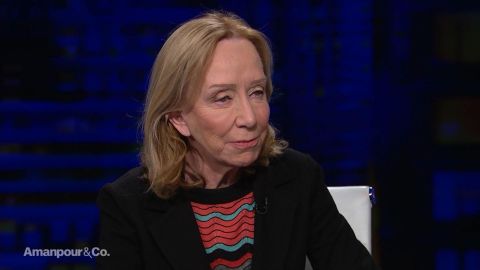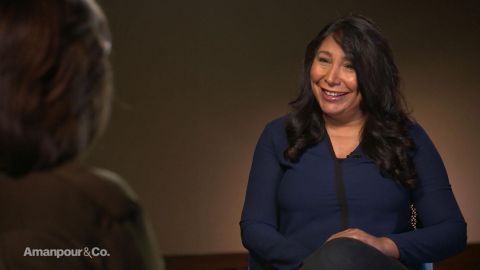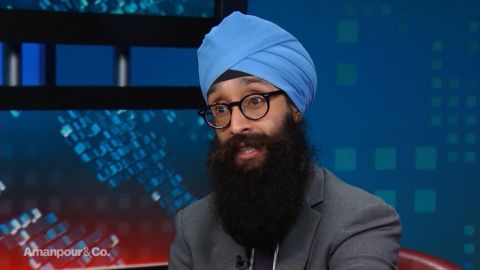Read Transcript EXPAND
HARI SREENIVASAN: What are we seeing today in the United States that most people watching wouldn’t know about?
DR. PRABHJOT SINGH, DIRECTOR ARNHOLD INSTITUTE FOR GLOBAL HEALTH: One thing I’ve been alarmed by is watching, for example in South Texas, the rise of parasitic diseases that come through soil into the feet of kids, hookworm, other sort of parasitic worms, tropical diseases that as a nation, we eradicated 100 years ago. We’re starting to see — we’re fighting this overseas where we have USA — we got former President Carter, who has put a huge amount of effort in eradicating these diseases in West Africa. And right as we’re doing that, we’re watching this rise back here in the U.S. And these are really diseases of poverty and the lack of basic essential health systems and social support. Along with that, we’re seeing rises in maternal mortality, moms dying. Particularly African-American mothers. And we’re also seeing in some groups, for example even in white middle-aged males, drops in life expectancy for the first time in decades in America, due to alcohol, suicide, opioid use. And as you start to see this picture come up, it’s just a deeper reminder that we have to really rethink how we’re building our health system. It isn’t always just about payment and access, it’s actually about how we are designing our relationship in places and how we’re addressing the challenges that communities are facing as primary issues, not as afterthoughts.
SREENIVASAN: Did you ever think when you were coming up through med school that you probably heard of doctors volunteering their time overseas somewhere, at an eye clinic that’s mobile some far-off land, that that could be happening here in the United States and in West Virginia and New Mexico?
SINGH: To be honest, I had no idea. I grew up in Kenya and we came to Michigan when I was young. And if you told me that this was happening in the United States, I would not have believed you. But as I’ve gone through training and as I’ve seen firsthand now the need for basic health care, essential health care, which includes basic social needs, it’s been eye- opening, it’s been concerning and it’s also, we have to just level set. That’s where we are.
SREENIVASAN: Give me some examples of lessons that you’re learning from places that are developing countries, that don’t have the healthcare system infrastructure that we might have, but are actually doing some things better.
SINGH: One thing that’s always amazed me is that if you go to Liberia or Uganda and you got a rural setting where you have a trained community health worker with a mobile phone, equipped with a diagnostic test from their backpack. They go to a household where there’s a kid, who has a fever. And all of us who are parents have had a kid who has a fever and we’re wondering, “Should we go to the doctor? Should we wait this out?” And what they’re able to do is go to the doorstep, go to the house, use that rapid diagnostic test to look for whether it’s an infectious cause, what type. And they’re actually treating with antibiotics people on the spot and then referring them to the hospital. And what’s amazing is that this network of community health workers is connected by mobile phones, has their quality assessed on a very regular basis, and is often put on a map where you can see how all these mobile networks of community health workers are actually working and where they’re working and are they effective and what’s the quality? And so you look at these sort of systems and you’re saying why don’t we have things like that here in the U.S.? And in some ways, when you look at Liberia or Uganda, they have been under so much pressure to create these systems, because they can’t build the big towers, that they have instead pushed that energy, that innovation, that ingenuity into building these very flat networked community-based mobile systems. And frankly, I think that they’re better than what we have in a lot of the United States and I hope that we can bring them into our own work, while we’re still exchanging the advances that we’re making here in the U.S.
SREENIVASAN: There’s also been programs in the United States, the remote access medical reaching out to communities in Appalachia that are totally underserved. Does that scale up? Do we end up having to maybe invest more in that model?
SINGH: First of all, I’m constantly blown away by remote area medical. I mean this is a group that was started in order to take care of people in the Amazon and in places like Liberia. And remote area medical now sets up camps, sophisticated camps, but here in Appalachia, in New Mexico, doing the work that they would have been doing abroad but the demand here is so high for free medical care that they have people that line up, thousands of people that come to these camps in the middle of America in order to get healthcare. First of all, I think it says like — it’s amazing that they’re doing that. It’s God’s work and it should be supported. And it says that we’ve got a huge hole in our healthcare system and there are a lot of them. And people come out by the thousands when they have the opportunity to access high-quality care.
SREENIVASAN: How do you make sense of this? How do you reconcile this? I mean here we are, blocks away from us are probably some of the best medical facilities on the planet. You know, the fanciest gadgets, the smartest people, the most accomplished in their fields, and you’re describing parts of our country where we are seeing diseases that the developing world has almost beaten and we’re getting them now.
SINGH: I find it staggering. I feel like as a country we’re so blessed and we’re drowning amidst riches. People are, you know, they can see how advanced this country can be. They can see what the best looks like in this country and yet it’s not getting to where people need it most. And I think that is a question of organization and design and where we just realize the work is at the front lines in communities where we need to focus our efforts. And until we just realize that, all the smart people, all the policymakers, all the inventors, the makers, the designers, as that attention shifts to where the real challenges are, at the person level, at the community level, we’ll start to see progress. And until we really start to make that mental shift, we’re going to be holding up our hands and saying, “What’s going on?”
SREENIVASAN: Right now, the system doesn’t allow for a lot of time that a doctor can spend with a patient to ask those, might be peripheral questions that might lead you to answers that diagnose a problem differently.
SINGH: If you’ve just received a prescription, again for insulin, for instance, something that was invented decades ago but whose prices just shot through the roof over this last decade. And you say, “Look, I’d like you to take this insulin. I’d like you to eat better and good luck to you,” which is actually how a lot of the conversations feel on the other side. What you’re going to be missing is potentially somebody who is ashamed to say that they can’t afford that insulin. Somebody who may say, “Look, I want to eat better but I don’t know how to do it.” Somebody to say that, “Look, you’re an authority figure, I don’t have any power in this discussion and I can’t even ask the questions I need to navigate the situation so I’m going to be quiet and just go home.” When that happens, in the old world health systems still get paid. In the world we’re moving to, hopefully, steadily, is that if they don’t get healthier, then you know, there’s no payment but I think, more importantly, we are more deeply understanding that like nobody is better for that situation.
SREENIVASAN: When you start to look at some of those peripheral reasons, you’re starting to pick at class, social inequality, race, gender, lots of other things that we don’t associate with healthcare. So how would a doctor or a nurse or a community health worker be on the front lines, be able to kind of tackle all of those really significant challenges that put that person where they are today?
SINGH: I think what is becoming very clear is that health care must be an advocate for the challenges people are facing. Let me give you a practical example. If you’re noticing that you see a lot of African-American young children with asthma, that happened to all cluster in a building of public housing, and they are coming in very frequently, it’s incumbent upon us as people in public health and healthcare to say, “Why is that happening? Let’s go upstream to the root of the challenge.” And as we start to look at these houses, we might find that there’s mold and there’s other issues, and we actually have to be pretty proactive in saying, “OK. Let’s work with the housing authority to get that done” because no individual may have the power to do that.
SREENIVASAN: If people Google you after this, they’re going to find possibly your Ted talk and then they’ll find articles that you were a victim of a hate crime in New York City, near where you work and live. And I want to ask, how did being a victim in that circumstance, get you to rethink or influence how you thought about people who go through the healthcare system, either about their physical health or even their mental health?
SINGH: Thanks for asking, Hari. So in 2013, I was attacked by about 20 to 30 men in a hate crime in Harlem where my jaw was fractured. And at that time, I was a professor of international affairs at Columbia and I was thinking about the big picture arena of community health across the world. And so for me, that event in 2013 actually precipitated a huge shift professionally for me. I said I wanted to move closer to doing work actually in the communities where I was working or living. And I wanted to focus much more on what’s happening on the front lines in the United States. So in short, the incident was I think, it was traumatic and it was also revelatory. One of my favorite writers, Flannery O’Connor says “Grace changes us and change is painful.” And I look at that incident and I say wow, my eyes were opened up. And I was able to see also where I lived in a very different light. And professionally, that said, “Oh, I better change what I’m doing.” And what I hope is that as we have these very tough social questions about race, about gender, equity, about class in America, we in healthcare, have to realize that hey, we need to engage these questions, it’s going to take a long time but the best way to do that is to actually go with and start to say, “OK. How do we redesign how we interact?”
SREENIVASAN: Prabhjot Singh, thanks for joining us.
SINGH: Thanks so much for having me.
About This Episode EXPAND
Christiane Amanpour interviews Doris Kearns Goodwin, U.S. Presidential Historian and Pulitzer Prize-winning author whose most recent book is “Leadership: Lessons from the Presidents for Turbulent Times;” and Haifaa al-Mansour, director of “Nappily Ever After.” Hari Sreenivasan interviews Prabhjot Singh, Director, Arnhold Global Health Institute and author of “Dying and Living in the Neighborhood.”
LEARN MORE


